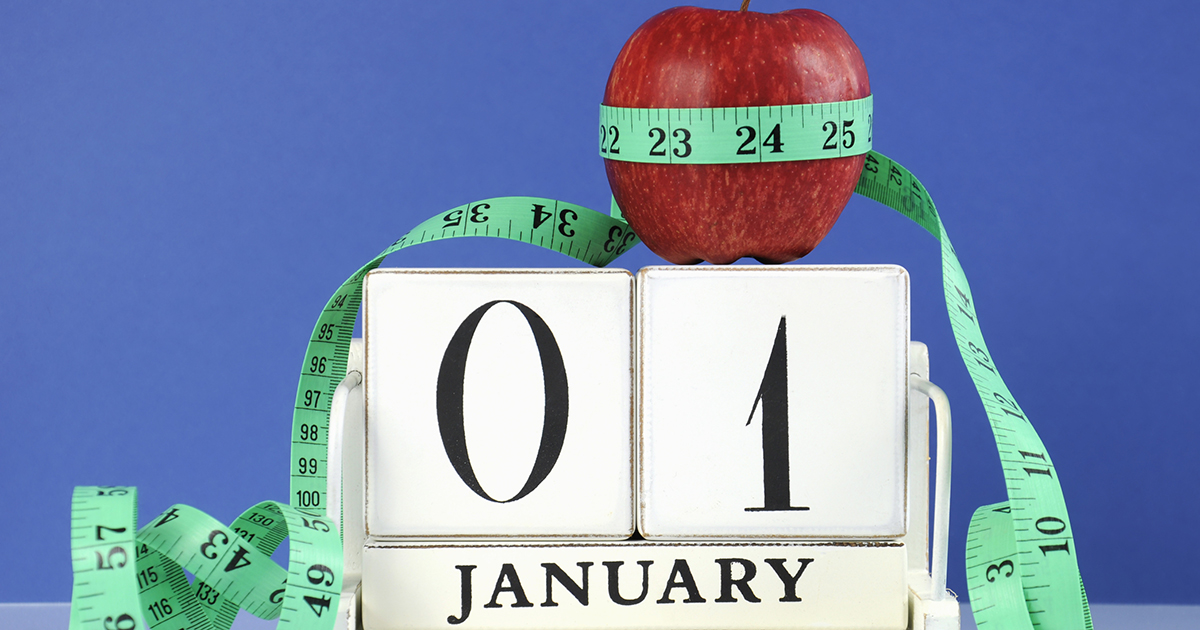10 Weight Loss Myths That Will Surprise You
People around the world struggle with their weight – bouncing from one yo-yo diet to the next. There are so many weight loss plans and strategies on the market, yet so many continue to struggle. When it comes to a healthy and efficient weight loss program, nothing beats a balanced diet and exercise. However, there appears to be a lack of awareness. It's tough to know what's true when so much information is displayed — it's confusing. The following ten myths may be sabotaging your goals.
10. Calories Are All Equal

Many have the mentality that calories reign supreme and that the number of calories outweighs the importance of the source. Regarding energy, yes, all calories are equal, however, when it comes to your bodily functions, 200 calories from cake is not the same as 200 calories from spinach.
While focusing on weight loss, different foods create varying levels of satiety. When you compare the same amount of calories from a vegetable stir-fry in comparison to a bag of chips, there is no comparison regarding satiety value. You will feel much more satisfied and will be less likely to overeat on foods such as fruits, vegetables, and beans, in comparison to donuts and candy.
9. Carbs Are the Enemy

You often hear of weight gain being associated with carbs, and although some low-carb diets are effective, they're not necessarily the healthiest option. Carbs are a vital source of energy, and when you eliminate carbs from your diet, you can reduce the effectiveness of your metabolism, reduce hormone efficiency, and increase stress levels.
It's the type of carbs that you choose which will determine whether or not you lose weight. Focus on carbs that provide your body with beneficial nutrients, especially dietary fiber. The key is eliminating carbs from processed foods and replacing them with whole foods, such as berries, beans, broccoli, eggplant, and sweet potatoes.
8. Fat Also Makes You Gain Weight

Fat does not make you fat – excess calories cause the weight gain. It is true that many fat-rich foods are also calorie-dense junk foods, meaning you're consuming food that is high in calories, yet low in nutrients. There is nothing unique about fat that causes you to pack on the pounds.
The truth is, you need fat to survive. The key is choosing the right sources of fat while avoiding trans fats and excessive consumption of saturated fats. The fat that you obtain from ingredients such as olive oil, avocado, nuts, and fish are highly beneficial to your health.
7. Fad Diets Are Effective

There are so many fad diets out there – promising that you'll lose 15 pounds within the first month. With so many people desperate to lose weight, they dedicate their time, money, and energy to these diets, only to find that they gain all the weight back once the program is over. Why does this happen? Well, for the most part, fad diets are not sustainable.
In order for you to lose weight and keep it off long-term, you need to make significant changes to your lifestyle. Current habits need to be altered, ensuring that you live a healthier, more balanced life. If you just drink diet shakes for six weeks, you haven't really changed much – the weight will be gained back as soon as you return to old habits. Weight loss is just as much mental as it is physical.
6. Skipping Meals Will Make You Lose Weight

When you have the mentality that fewer calories will make you lose weight, you're not exactly wrong, however, starving yourself is also not the solution. Research has shown that although some individuals will lose weight short-term, they often gain back dangerous belly fat. This is the type of weight that increases your risk of heart disease and other health complications.
Your body requires food to properly function and when you skip meals, you're reducing your intake of vital nutrients. This will lead to fatigue and in turn, you may feel less motivated to stick to your diet plan. Also, when you starve yourself, you're more prone to binge on unhealthy foods.
5. Healthy Foods Are Expensive

It is often the assumption that eating healthy is expensive, but it's much cheaper than you think. You can shop wisely, especially when you shop locally. Farmers' markets, for instance, offer so much fresh produce for a fraction of the cost. This also encourages you to eat foods that are in season.
To purchase fresh fruits, vegetables, lean proteins, and fish, it is slightly more expensive than frozen processed dinners, however, the difference isn't substantial. In fact, Harvard University did a study that confirmed eating healthy, only costs an extra $1.50 per day. When you factor in the nutritional value of a fresh food diet, it is most certainly the optimal choice.
4. Snacking Leads to Weight Gain

The type of foods that you are eating makes the ultimate difference. Snacking between meals can potentially make you gain weight, but snacks do not necessarily equal a reduced ability to lose weight. If you are hungry, then choosing nutrient-dense snacks could be a beneficial choice, especially in terms of your metabolism.
If you are grabbing snacks that are high in sugar and salt due to boredom, for instance, this is when issues arise. When you snack smart, however, you create a routine that allows you to pack more nutrition into your day, benefiting your body's natural weight loss systems. Greek yogurt, fruit, nuts, raw vegetables, and other similar foods are an excellent way to satisfy your hunger between meals.
3. Water Will Make You Lose Weight

There is some truth to this statement, however, water itself does not cause you to lose weight – it naturally hydrates your body. If you start to drink eight cups of water a day, but do not change any other aspect of your current diet and lifestyle, you won't see the results you're aiming for.
If you're someone who drinks a lot of pop, however, substituting water for these high-sugar beverages is a great place to start. Also, if you're someone who snacks out of boredom, drinking water during these moments could also have a positive effect. Yes, you should start drinking more water, but you need to focus on all other aspects of your diet as well.
2. You Can't Eat Fast Food

Most fast food is full of grease and empty calories, but not all fast food options are bad. Once in a while, we need something fast on-the-go, it is the reality in which we live in. Our lives are fast-paced and sometimes, a quick bite to eat is necessary. You can make wiser choices, both in terms of the places you grab food from, as well as the menu choices you opt for.
Grabbing a quick Korean take-out meal, full of fresh vegetables is just as fast, and you benefit from nutritious ingredients. Instead of fried chicken, choose grilled, choose a salad without dressing, instead of a burger. It's about the choices that you make. If you would like to lose weight, you need to work with your body, not against it.
1. Your Genes Decide Your Weight

Many give up on their weight loss goals, based on their family history. They think, “my mom was big, it's simply in my genes, there's nothing I can do about it.” Although your genes do influence your weight to some degree, your behaviors are far much more influential. When you combine regular exercise, including strength training, as well as a balanced diet, you will lose weight.